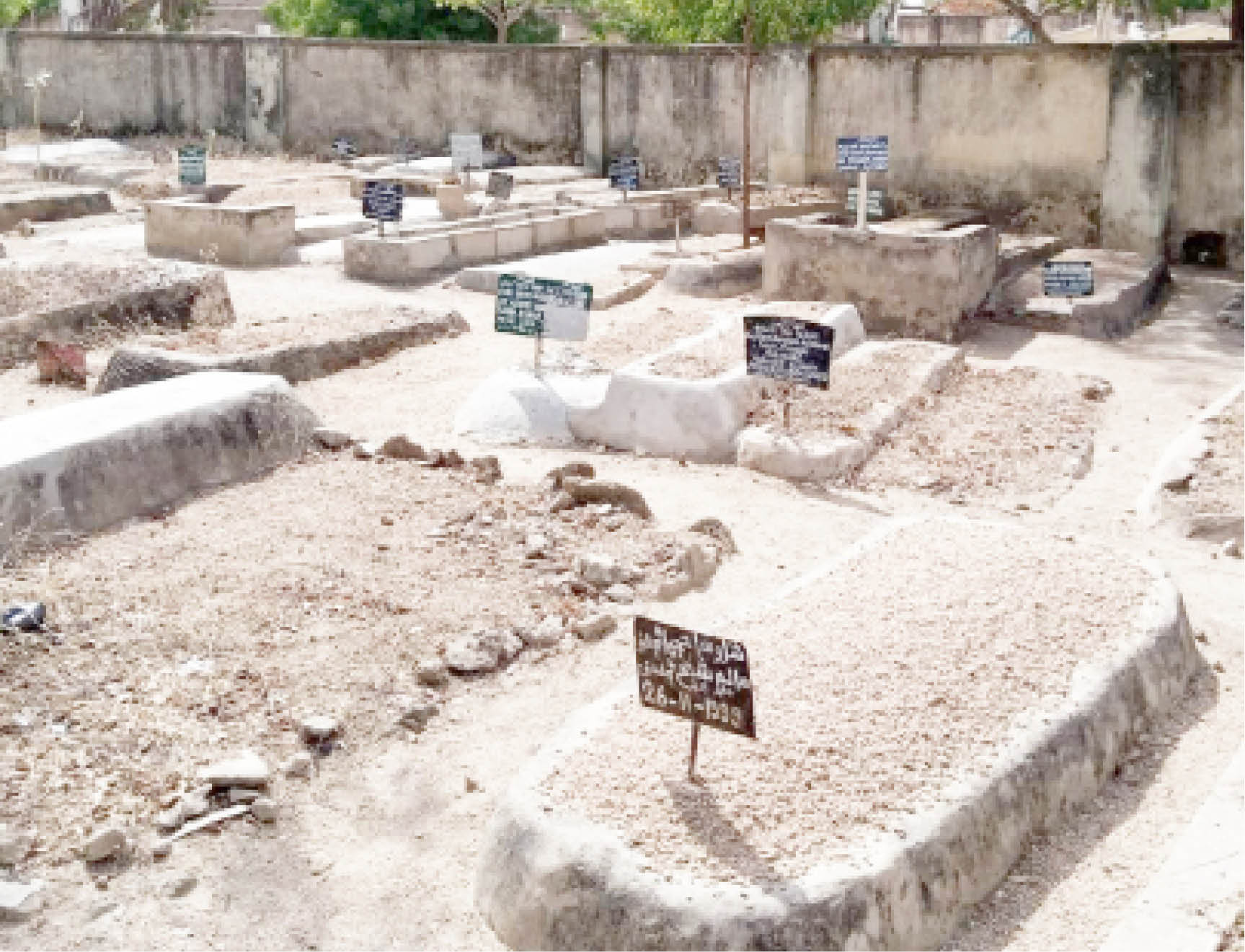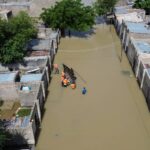Waliyyai Cemetery, situated beside the Federal Secretariat at Katsina Road in Fagge Local Government Area of Kano State, is the resting place for the founder of the Qadiriyya Movement and plays host to many people annually and occasionally, Daily Trust reports.
A visit by our correspondent showed that the graves at the cemetery are in good shape and the environment kept tidy.
- Facebook slams two-year ban on Trump
Nigerians opt for Virtual Private Networks as FG suspends Twitter
Almost all the graves have walls with names written on them for easy identification.
Findings by Daily Trust revealed that the cemetery was established about 400 years ago, during the reign of Emir Muhammad Rumfa.
It was initially a farmland owned by one Malam Muhammadu Nasamu, where he buried his family members. He later dedicated it to the entire Muslim Ummah.
It was gathered that the cemetery was initially called Mai Giginya, referring to the Wali Mai Giginya, who was also buried there 100 years ago.
It later got its current name, Waliyyai (saints), as majority of the people buried in the cemetery were big Islamic scholars who were regarded as pious or saints.
The Waliyyai Cemetery was mainly for Qadiriyya sect members, cemetery guard, Malam Nura Muhammad Nura told our correspondent.

“Majority of the people lying here are Qadiriyya sect members, even though some other people do their burial here,” he said.
Examples of prominent people resting in the cemetery, it was gathered, include the leader of the Qadiriyya sect in Africa, Sheikh Muhammad Nasir Kabara and his followers like Malam Yusuf Makwarari, Mahir Sharu Bala and others.
“Not only that Sheikh Malam Nasir Kabara is here, his forefathers were also buried here, including his great-grandfather, Malam Umaru Na-Kabara, a friend to Shaikh Usman Danfodiyo; his grandfather, Malam Ahmadu. Malam Ibrahim Na-tsugunne’s father is also here.
“Among Sheikh Kabara’s family members who were also buried in the cemetery were his mother, his wives, children, grandchildren, in-laws and others.
“Before now, not everybody was allowed to be buried here. Anybody who wanted to bury his family member here had to get approval from the Qadiriyya house. But, now, people bring in their people without seeking any approval,” the cemetery guard said.
Findings showed that during his lifetime, the late leader of the Qadiriyya sect, Sheikh Kabara used to visit his forefathers in the cemetery.
He later started coming with his followers before it became an international gathering (Maukibi) which holds annually.
The Maukibi is a whole day affair, where Qadiriyya members all over African countries come to Kano to observe the programme and celebrate.
Daily Trust Saturday learnt that although Sheikh Kabara is no more, the event continues to hold under the leadership of his son, Khalifa Qaribullah Sheikh Nasiru Kabara.
It was further gathered that apart from the annual event, people visit the cemetery to pray for the souls of Sheikh Kabara and other prominent people who were buried here.
“We always receive people who come to visit Sheikh Kabara and other prominent people here. I can tell you that there is no single day you will not see people coming to visit him, alongside his followers. This has made the place very popular,” the cemetery guard added.
It was also observed that besides the cemetery, there is a big Juma’at mosque known as Kanzul Musald, built by Sheikh Kabara.

Malam Nura also told our correspondent that those who want to bury members of their families in the cemetery usually ask them to dig graves for them.
“As we receive the information, we ask for the sex and size of the dead person in order to dig a grave accordingly,” he explained.
On how the place is maintained, Malam Nura said they swept it on a daily basis.
“We are up to 10 people working here, but I am the only person that stays here all the time. We sweep the place on a daily basis. We also remove grasses in the place. If there is a grave that started wearing away we amend it,” he said.
Daily Trust Saturday observed that the Waliyyai Cemetery is not filled up like others in Kano State.
“I don’t know why people don’t come here to bury. Unlike other cemeteries where many people are buried almost every day, here, we can spend two to three days without seeing anybody,” the guard said.
Nura also said the main challenge they face in the cemetery is especially during the rainy season.
“We find it difficult to maintain the cemetery in the rainy season. You know there are many old graves here, which used to wash off. It is usually our tough time,” he added.
He lamented the attitude of the state government in maintaining the cemetery, saying it does not bring the sand used in amending the graves.
“Government doesn’t bring anything here, in terms of working materials like brooms, even the sand we use for amending the graves. It is only philanthropists that donate sand to the cemetery. We also make announcements during Friday prayers, asking people for support. Some people donate money while others donate sand, clay pots and other working materials,” he said.
According to him, another challenge is that government has not recruited people to work in the cemetery like what is happening in other places.
“We are more than 10 people working here for many years, and none of us was officially recruited as it is with our counterparts in other cemeteries in the state, who are paid N5,000 as monthly allowance,” he also said.
Asked how they survive, Malam Nura smiled and said they only depended on what people give when they bring their family members, or from visitors who come often to pray for their families.

“People who come to visit their buried family members assist us with some money. Those that come to bury their families also give us some token. Among us there are people who dig graves. Although there is no fixed amount for digging a grave, people offer what they can afford; and we do not reject it, no matter how small it is,” he added.
He called on people to visit their late relatives more often.
“This place is the last abode for everyone of us. No matter how long you stay in this world, one day you will leave. We should bear in mind that the people lying down here are our loved ones, so they still need our care. We can take care of them by visiting them regularly to pray for them and know the condition of their graves. If a grave is not in good shape, we can come to their aid and amend it.
“Unfortunately, there are people who show I-don’t-care attitude towards their dead ones. You can find a situation where a grave is here for years and you hardly see anybody coming to visit it. This is not fair at all. It is only when you come to the cemetery that you will know the condition of the graves,” Malam Nura concluded.

 Join Daily Trust WhatsApp Community For Quick Access To News and Happenings Around You.
Join Daily Trust WhatsApp Community For Quick Access To News and Happenings Around You.


